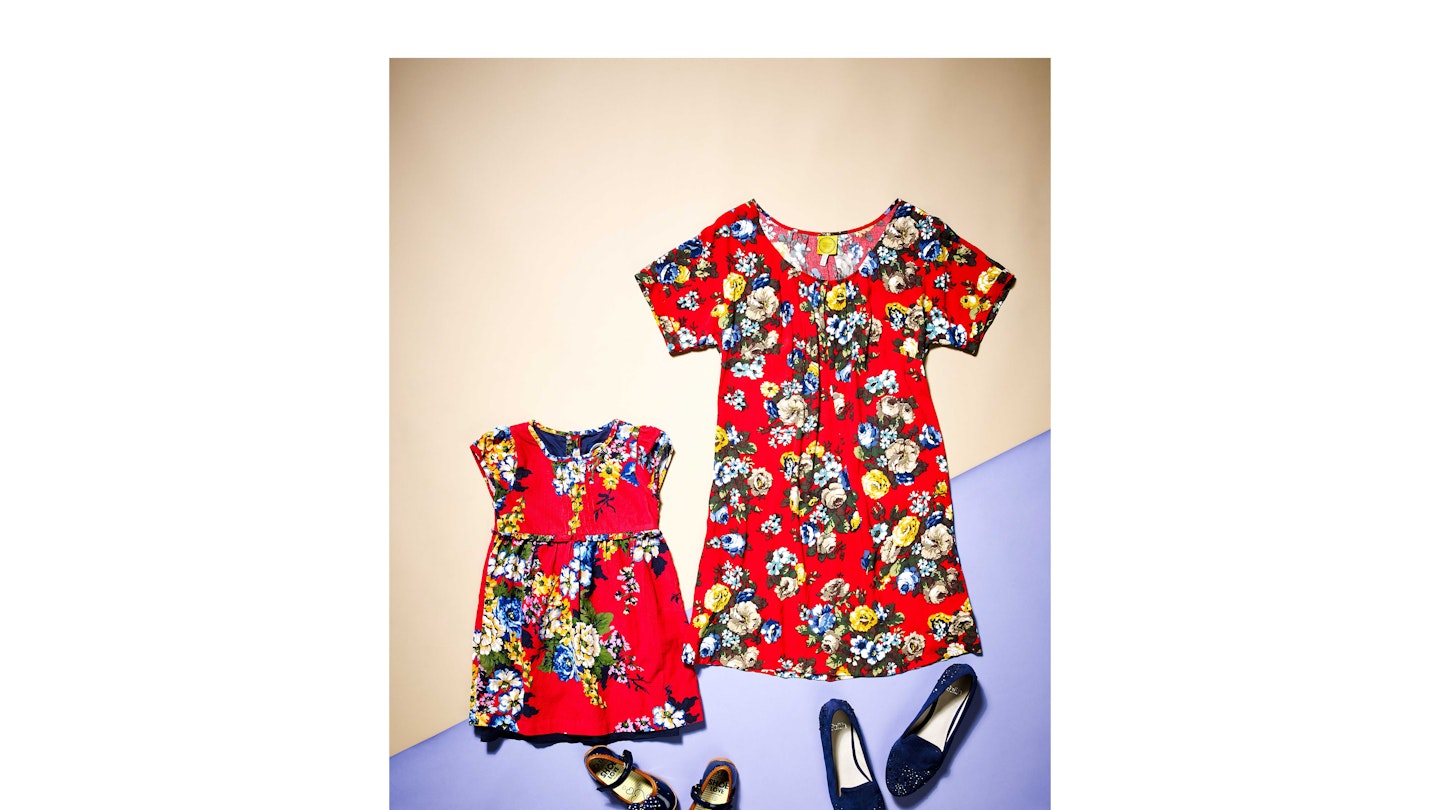Creating a tiny version of yourself may be tempting, but it could have a surprising impact on your on-trend tot
My four-year-old daughter Patti and I take great pleasure in mum and daughter dressing-up sessions.
The look is normally dictated by Patti, and our props can be anything from matching hair bands or a couple of pairs of my oversized sunglasses, to more complicated outfits (like the big ‘n’ small Ginny Weasley costumes we wore to one fancy dress party).
Scrolling back through photos, I often find myself indulgently commenting to friends – or to Patti herself – that she is my ‘mini-me’. Of course, this is all harmless fun, but I sometimes worry that there’s something deeper going on. What psychological need is revealed by the desire to make my child look like me – and how might it affect her in the future?
Doing a Harper
There’s no dodging the fact that the way we dress our children has become something of a national obsession. Latest research suggests the average British child’s wardrobe is now worth more than £1300, with 71% of mums spending more money on clothes for their children than for themselves or their partners.
The media has dubbed this the ‘Harper Beckham Effect’ but, in fairness to Victoria, she’s not the only celeb mum whose style is reflected by her kids. We love seeing pictures of Gwen Stefani’s son Kingston wearing his mum’s trademark eyeliner, or Nicole Richie and Sparrow donning matching headwear.
This year even saw the first Global Kids Fashion Week (GKFW) – where fab mamas and their immaculately turned-out kids paid up to £110 for catwalk-side seats
This year even saw the first Global Kids Fashion Week (GKFW) – where fab mamas and their immaculately turned-out kids paid up to £110 for catwalk-side seats. The event is undoubtedly a reflection of the huge growth in the kids’ retail sector, which now includes beautiful childrenswear lines from major fashion houses, such as Cavalli and Missoni.
We shared the FROW with super-stylish Kidd sisters Jodie and Jemma, celebrity make-up artist Charlotte Tilbury and Jamie Oliver’s wife Jools (all with respective children). One fashion editor I spoke to, who wishes to remain nameless, took her daughter along, and felt both thrilled and conflicted by the event.
‘For the older girls, it was the chance to do something they’ve only read about in teen magazines. Which is fine – it’s fantasy,’ she says. ‘It was the toddlers getting their nails painted that I found strange. What joy can an 18 month old derive from a manicure?’
But this preoccupation with our children’s grooming isn’t just limited to designer outfits in the style of our own. It’s one thing dressing your kids in a way you love, but what about exact replicas of what you wear yourself? There’s a growing demand for outfits that are essentially just scaled-down versions of adult clothes and, on the high street, River Island, Topshop and Cos all have lookalike ranges.
Mini accessories
My friend Ellen is a sucker for a kiddie version of whatever she’s wearing. Her four-year-old daughter’s wardrobe is almost a carbon copy of her own, and just yesterday they showed up for a playdate in matching electric blue skater skirts.
‘We just love the same things,’ she said when I quizzed her on her motives.
Consultant child psychologist Emma Citron believes some of this obsession is born of a need to be seen as a diligent mum. ‘In the age of social networking, we’re bombarded by stories of what great parents all our friends are. It’s easy to slip into thinking that what our children look like reflects on how well we are parenting them.’
An increasing number of mental health experts believe mums who shape their kids into small versions of themselves would be better off encouraging their individuality
However, the phrase ‘mini-me’ has started to morph from a novelty expression to a term with negative connotations, and an increasing number of mental health experts believe mums who shape their kids into small versions of themselves would be better off encouraging their individuality.
Psychologist and writer Amanda Hills says, ‘It prevents children from experimenting. They have to be free to make mistakes – and to learn from them.’ And, in response to a growing demand for baby fancy-dress costumes, children’s charity Kidscape has warned against objectifying our little ones. ‘There is a growing trend of accessorising babies,’ says director Claude Knights. ‘Some parents try too hard to make kids fit in with their style, rather than allowing them their own identity.’
Arrested development
The key to keeping a balance is to regularly question your motives. ‘If your child is genuinely enjoying the dressing up, then there’s no harm in it,’ says Emma. ‘But the minute you are coercing them, it has to stop.’ And what does the desire to create a young version of themselves say about the women who do it?
‘It can indicate an over-inflated ego who can’t understand why everyone doesn’t want to be them,’ says Amanda. ‘Or, conversely, it points to someone with low self-esteem trying to bolster their sense of self-worth’ And a mother who is super-obsessed with clothing and appearance may often have issues around body image, which a daughter could easily pick up on.
That’s not to say an adult creating a tiny clone is in any way related to a daughter’s desire to dress up in Mummy’s shoes. ‘That’s normal,’ says Amanda. ‘Your little girl is trying to relate to the females in the home.’ Meanwhile, back in Patti’s bedroom, the princess frocks are out and she’d like me to dress up, too. After establishing I’m a bit big for the costumes, she allows me to recreate the look with a sheet.
Does she mind, I ask hesitantly, that Mummy doesn’t look exactly the same as her? ‘It’s fine,’ she replies. ‘I mostly like the playing.’ I breathe a sigh of relief.
